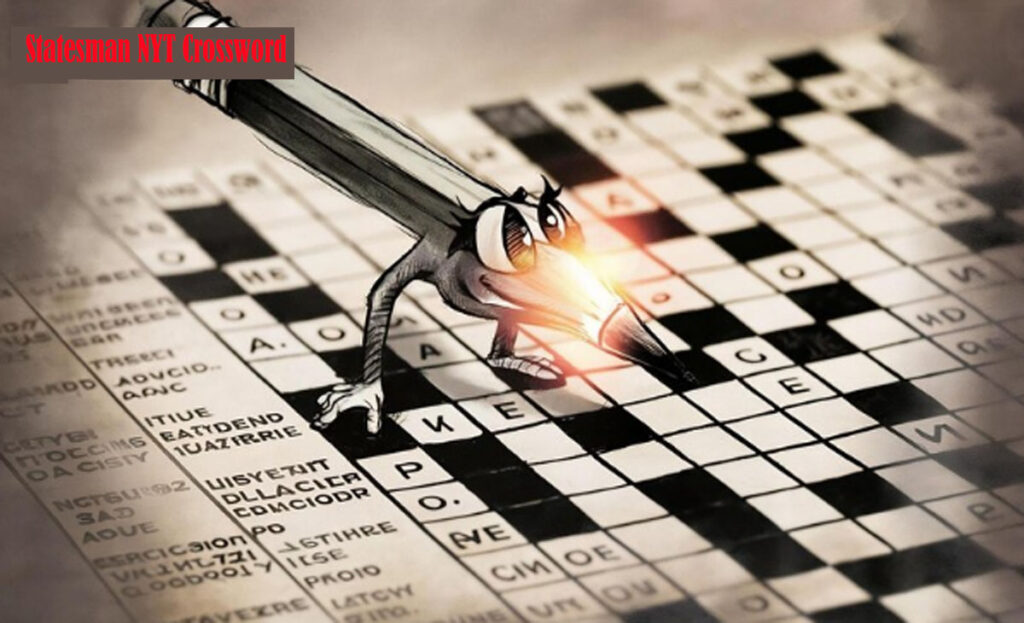
Statesman NYT Crossword: A Classic Clue with a Political Twist
Introduction: Understanding the ‘Statesman’ Clue in the NYT Crossword
In the world of crossword puzzles, the New York Times (NYT) Crossword holds a legendary status for its wit, cultural depth, and clever wordplay. Among the thousands of clues that appear across its daily and Sunday editions, one type that consistently appears is the politically-themed clue—especially those involving the word “statesman.” A seemingly simple word, “statesman” in crossword clues can refer to historical figures, political ideologies, or even cryptic puns.
Often, solvers may find the clue listed as something like “Prominent statesman,” “A revered statesman,” or simply “Statesman.” Depending on the puzzle’s difficulty level, the answer might be straightforward (e.g., “Lincoln”) or more obscure or metaphorical (e.g., “Elder” or “Pol”). The beauty of the NYT Crossword lies in its double meanings, and clues like “statesman” require both general knowledge and wordplay skills.
What Does ‘Statesman’ Mean in Crossword Context?
In everyday English, a statesman is defined as an experienced, respected political leader or figure, often associated with wisdom and diplomacy. However, in crossword language, the definition can shift depending on how the clue is framed and what day of the week the puzzle appears—Monday being easiest and Saturday being most difficult.
For example, in a Monday puzzle, the answer to “Statesman” might be something clear like “Leader” or “Senator.” On the other hand, in a Saturday puzzle, the clue might be more abstract, such as referencing a historical figure by nickname or initials like “FDR” or “Ike.” Advanced solvers understand that clues in the NYT Crossword often bend the definition and rely on cultural or historical knowledge.
Popular Answers to ‘Statesman’ Clues in NYT Crosswords
Over time, several answers have become frequent go-tos for statesman-related clues. These include:
- ELDER – Often referencing a senior statesman, such as Cicero the Elder.
- POL – Short for politician, a clever abbreviation that fits short letter spaces.
- FDR, IKE, ABE – U.S. presidents often make repeat appearances.
- ORATOR – A nod to the statesman’s skill in speech and public persuasion.
- LEADER – A general but fitting term for prominent political figures.
Each of these answers can be used depending on the puzzle’s theme, grid size, and day of the week. Some puzzles also include clever misdirections, using the clue “statesman” to refer to someone from a U.S. state or even as a metaphor for “elder.”
How to Solve ‘Statesman’ Clues Faster in NYT Crosswords
If you’re looking to improve your speed and accuracy in solving statesman-related clues, follow these tips:
- Check the Puzzle’s Day – NYT puzzles increase in difficulty as the week progresses. Simpler answers appear early in the week, while trickier answers show up later.
- Cross-Check with Other Clues – Use surrounding down or across clues to verify letters and eliminate wrong guesses.
- Think Historically – Brush up on your knowledge of presidents, diplomats, and political philosophers—names like “Disraeli,” “Lincoln,” or “Jefferson” pop up often.
- Watch for Abbreviations – Clues like “Statesman, briefly” or “Old statesman” may indicate shortened forms like “POL” or “FDR.”
- Recognize Reused Answers – The NYT often repeats common entries like “POL” or “ELDER,” especially when fitting specific grid lengths.
Statesman-Themed Crossword Puzzles in the NYT
Occasionally, the New York Times Crossword features full themes centered on political figures and statesmen. These might involve historical references, puns on names, or entire grids filled with U.S. Presidents, British Prime Ministers, or global leaders. For example, a puzzle might theme around “The Founding Fathers,” with answers like “Hamilton”, “Madison”, or “Washington.”
Themed puzzles are more common in Sunday editions, which feature larger grids and often more elaborate storytelling or cultural references. Solving such puzzles provides not only wordplay fun but also an educational dive into political history and leadership.
Why ‘Statesman’ Is a Favorite Clue Among Crossword Constructors
Crossword constructors love using the clue “statesman” because it offers rich thematic flexibility and brevity. It can lead to long answers for larger grids or short abbreviations for tight corners. The word also allows for historical, political, and even poetic interpretations.
Moreover, statesman-related clues are timeless. As long as society reveres leadership, diplomacy, and governance, such clues remain relevant. Puzzle creators can reference both ancient Roman senators and modern presidents under the umbrella of a single word—“statesman.”
Where to Practice More ‘Statesman’ Clues
To sharpen your crossword skills and encounter more clues like “statesman,” explore these sources:
- NYT Crossword Archives – Search previous puzzles using the New York Times Crossword app or website.
- Crossword Tracker – A database of clues and answers used by the NYT and other publications.
- Wordplay Blog (NYT) – Offers insights, explanations, and breakdowns of difficult clues, including political ones.
- Themed Crossword Books – NYT publishes collections with political, historical, and literary themes.
With regular practice, even a tricky clue like “Elder statesman, informally” becomes easy to crack.
Conclusion: The Depth Behind a Simple Clue
Though it may seem like just another word, “statesman” in the NYT Crossword carries weight, wit, and complexity. It can represent a revered leader, a political mind, or a cryptic abbreviation, depending on context. For crossword enthusiasts, solving such clues offers a mini-lesson in history, vocabulary, and lateral thinking.
Whether you’re a beginner tackling Monday’s puzzle or a pro decoding Saturday’s stumper, understanding clues like “statesman” adds depth and satisfaction to the solving journey. It’s more than just filling in letters—it’s about connecting with the past, the present, and the art of wordplay.

Responses